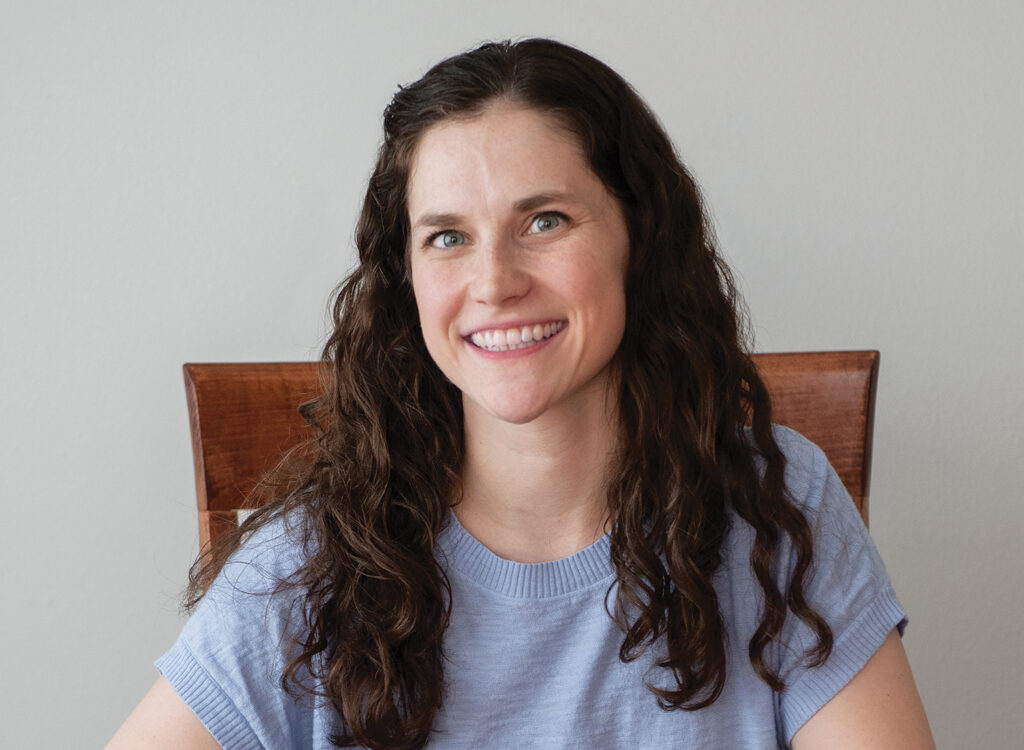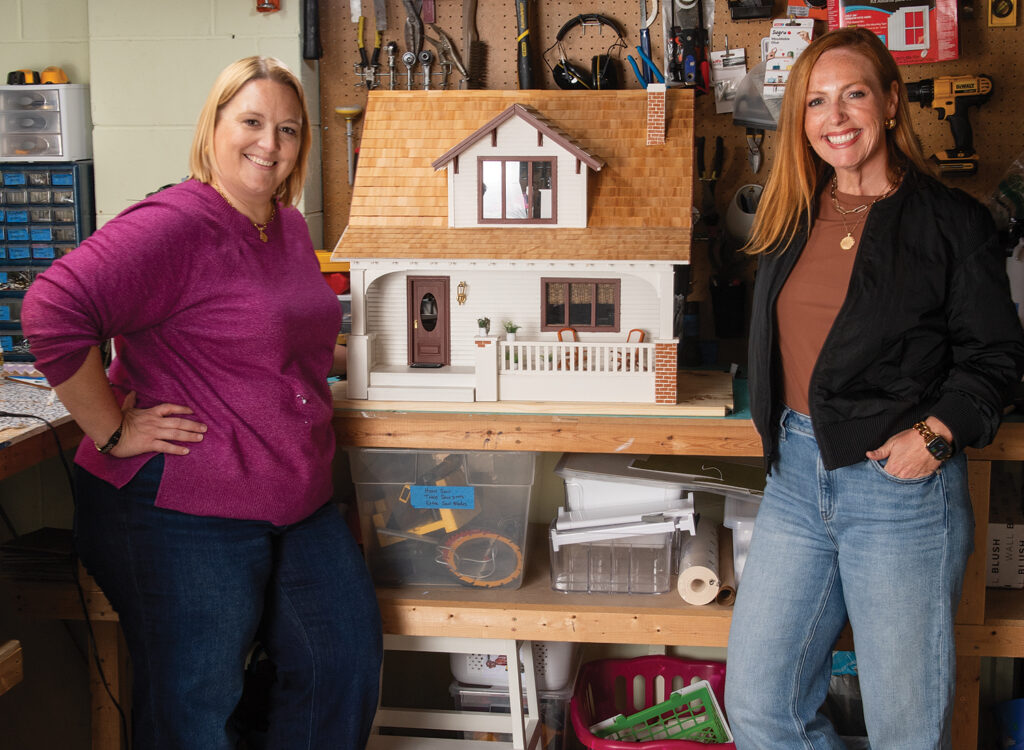Working with mental illness
BY Jane Schorer Meisner for “Lifting the Veil”

BPC Staff Jan 2, 2018 | 8:01 pm
6 min read time
1,351 wordsBusiness Record Insider, Health and WellnessIn any given year, 1 in 5 Iowans — about 600,000 people — experience a mental health issue.
And yet a stigma surrounds mental illness that often prevents people from seeking treatment and isolates them from friends, neighbors or co-workers.
“My biggest frustration in working in this field for the last 17 years has been that sense of this is someone else’s problem,” said Shannon Evers, a licensed social worker and clinical director of Employee & Family Resources. “I feel like the stigma can lift if we stop seeing it as someone else’s problem and start acknowledging that this affects all of us.”
While most people know what it feels like to experience a situational mental health issue such as stress or depression related to a life event, a smaller number suffer from more serious, chronic mental health conditions.
“In Iowa, about 137,000 people suffer with serious and chronic mental illness,” said Peggy Huppert, executive director of the National Alliance on Mental Health (NAMI) – Iowa. “It really is a disease of the brain,” she said. “If you look at the brain scans or MRIs of people with schizophrenia, bipolar disorder or major depression, their brains literally look different than the brains of people who don’t have it. But that’s still a message a lot of people are not accepting or absorbing. There’s still major stigma attached.”
Battling a stigma is not the only challenge for mentally ill individuals, their families and caregivers in Greater Des Moines. Treatment facilities are inadequate, experts say, psychiatrists are in short supply, more affordable housing is needed and critical funding is missing.
IOWA: NEAR THE BOTTOM NATIONALLY
After the closing of mental health treatment facilities in Mount Pleasant and Clarinda in the past several years, Iowa has only two operating mental health institutes. Located in Cherokee and Independence, these remaining facilities provide short-term psychiatric treatment and care for severe symptoms of mental illness.
The two facilities offer a total of 64 beds to some 137,000 Iowans with chronic and serious mental illness. That places Iowa as No. 50 nationally in the number of state-funded beds available for mentally ill patients.
“For Gov. Branstad, closing the two facilities was clearly ideological,” Huppert said. “He was trying to save money, because it’s expensive to serve someone in an institutional setting. When he said it’s better to serve people in a different setting, NAMI – Iowa agrees with that. But the truth is that other options aren’t out there.”
Iowa ranks No. 47 in its total number of mental health beds, including those at private facilities. Locally, Broadlawns Medical Center offers 30 beds for patients needing mental health care.
“The problem is the people who don’t have anywhere else to go who stay here for three, six or nine months,” said Broadlawns Behavioral Health Administrator Steve Johnson. “We’ve had people in here for as long as a year.”
Johnson would like the Legislature to authorize repurposing space at the Cherokee and Independence facilities to provide more beds.
“Cherokee could double its capacity just with added staff,” he said. “They’ve got the infrastructure and the space.”
A SHORTAGE OF PSYCHIATRISTS
Along with a lack of inpatient beds for mentally ill patients, Iowa also faces a shortage of trained mental health practitioners. NAMI – Iowa statistics show only 121 psychiatrists in private practice.
“We rank 48th in the number of psychiatrists — and the largest segment is older than age 50, so the number is going to be declining pretty rapidly in the next 10 years,” Johnson said.
A new psychiatric residency program at Broadlawns hopefully will help provide more practitioners, he said. “We’re looking at how we can make sure we are helping their job satisfaction and keeping them focused on clinical care — not getting bogged down with paperwork.”
Still, Huppert said, the fact that Iowa is at the bottom of national rankings in a number of different categories regarding mental health care does not help in recruiting mental health professionals.
“One of the things doctors look at is how the state is investing in services,” she said.
NOWHERE TO GO
Mental health care providers in Greater Des Moines know the secret to effective treatment of chronic and serious mental illness: wrap-around services.
“There have to be employment opportunities for people with problems in their past,” Huppert said. “We need to develop job training for people who have mental health challenges, and we need case workers who can help them navigate when things go wrong. It’s a whole system of care that needs to be there.”
And, especially, Des Moines needs affordable housing, mental health advocates say.
Once mentally ill people are released from jail, they often have nowhere to go, said Polk County Supervisor Angela Connolly. “Housing is a big issue,” she said. “It’s a big piece of the puzzle to figure out where they’re going to go once they’re out of jail or out of the emergency room.”
Each homeless individual can cost taxpayers $14,480 per year if they spend time in jail or prison, Connolly said.
Without adequate housing, it’s hard to keep track of people released from jail to make sure they continue the medications they need, said Tim Larson, director of the local jail diversion program.
“If you have a serious mental illness and you’re on a small fixed income, Des Moines is a tough place to get affordable housing,” said Johnson, of Broadlawns Medical Center.
“People with complex mental health needs require some alternative services and housing arrangements that are pretty intensive and that require some supervision. That goes beyond Medicaid. We have to be able to use some state or local funds to be able to fund these things.”
ROLE OF THE WORKPLACE
Mental health advocates agree that local employers are power players in the effort to change attitudes toward mental illness and to promote improved mental health care in Des Moines.
And they stand to reap huge rewards for their efforts.
The Center for Prevention and Health estimates that mental illness and substance abuse issues cost employers in the United States between $79 and $105 billion each year because of factors such as reduced productivity, absenteeism and increased health care costs.
Some employers now offer employee assistance programs, but often employees don’t understand the free benefit, said Evers. EFR provides employee assistance, substance abuse assessment services and long-term outpatient counseling services to many area employers and school districts.
“We get anything from stress management to people who are dealing with grief and loss and people who are on the verge of some very serious depression or anxiety,” Evers said. “In the fiscal year 2017, EFR provided counseling services for 2,371 individuals in the Greater Des Moines community, as well as 3,517 substance abuse evaluations through our jail-based and walk-in assessment programs.”
Evers said it’s imperative that employers support good mental health for employees.
“It’s the right thing to do if you care about your employees, but also if you want them to be productive,” she said. “There are times when people need a mental health day, and they should be able to call in and say that.”
Workplaces need to foster dialogues about mental illness, because co-workers can provide an important support system, said Orchard Place Chief Executive Officer Anne Starr. “If your child has cancer, they’re doing bake sales and bringing you cards and asking how Johnny’s doing,” she said. “But if Johnny is mentally ill, nobody talks about it.”
Too often, employers have the expectation that employees leave their personal life at home, said Liz Cox, executive director of Prevent Child Abuse Iowa, which coordinates the local Connections Matter project promoting caring relationships. “The fact of the matter is, we employ human beings. We’re complicated.”
Employers should simply assume that every employee is dealing with some personal challenge — because they are, Cox said. A caring conversation between a manager and employee could be instrumental in encouraging an employee to seek help.
“We know that employers are now realizing that facilitating this relationship component is essential to productivity and retention,” Cox said. “And it costs zero dollars.”









